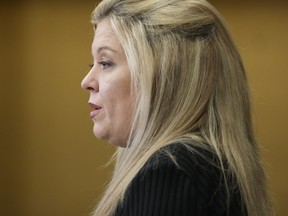Politics
Canada’s Support for Palestinian Statehood Sparks Controversy

Mark Carney’s recent statement advocating for the recognition of a Palestinian state has ignited significant debate in Canada. Critics argue that such a move would effectively reward terrorism rather than promote peace. This contention stems from the ongoing influence of Hamas, a group classified as a terrorist organization in Canada, which orchestrated a violent attack on civilians on October 7, 2023.
Hamas’s actions during this attack included targeting women, children, and the elderly, taking hostages, and employing brutal tactics, all of which are not disputed facts. Carney’s suggestion that Canada could support Palestinian statehood, even with conditions for it to be “democratic and demilitarized,” raises concerns among opponents. They assert that offering recognition under these circumstances would merely incentivize violent actors while failing to address the core issues of governance and security.
Critics emphasize that recognition should not be given as a goodwill gesture. Instead, it is a form of leverage that should only be extended once tangible progress has been made towards peace. The argument presented by opponents of Carney’s stance is straightforward: without the complete removal of Hamas from political power, the notion of a Palestinian state remains untenable.
Concerns Over Palestinian Governance
The Palestinian Authority, which is often regarded as the legitimate governing body, currently lacks the credibility and authority to manage a state free from terrorism. In Gaza, Hamas remains firmly in control, wielding weapons and influence over the population. The prospect of holding democratic elections in Gaza, free from Hamas’s interference, has been described by critics as unrealistic. They liken it to searching for ice cubes in the Sahara—an unlikely outcome under the present conditions.
Carney’s approach has been criticized for lacking a clear demand for the removal of Hamas from power. Instead of insisting on a legitimate leadership that would prioritize peace, his comments are seen as an attempt to align Canada with European nations that are already moving towards recognition. Yet, critics argue that gestures of recognition do not equate to effective policy or genuine diplomatic efforts.
The broader implications of Carney’s position are troubling for some observers. They argue that it undermines Canada’s moral clarity on the issue of terrorism. If the international community is willing to recognize a state that continues to harbor terrorist elements, it sets a dangerous precedent. The question posed by critics is significant: why should a group that has committed mass atrocities be offered the same diplomatic courtesies as any other state?
Seeking Genuine Palestinian Leadership
Supporters of a two-state solution maintain that achieving long-term peace requires a secure Israel alongside a self-governed Palestinian state. However, they assert that this vision can only materialize if Palestinians elect leaders who fundamentally reject violence. According to critics, the current situation does not support this outcome, as Hamas continues to glorify acts of terrorism rather than fostering a culture of peace.
Real progress toward statehood necessitates a foundation based on the rule of law, civil rights, and transparent governance. Advocates for a stable Palestinian state argue that it will not be achieved by granting recognition to a group that has perpetuated violence against civilians. Instead, they stress the importance of demonstrating that terrorism has consequences and that democracy must be built on a framework of stability and mutual respect.
Carney’s comments have been viewed as an impulsive attempt to influence Canada’s foreign policy without adequately addressing the necessary groundwork for meaningful change. Critics believe such optics can lead to real-world repercussions. They contend that when Western governments seem to lean towards recognition despite the ongoing influence of Hamas, it sends a message to extremist groups worldwide: violence may yield rewards.
The urgency for genuine reform within Palestinian society is underscored by calls for accountability and disarmament. Carney, given his experience in global affairs, is urged by detractors to advocate for democratic alternatives to Hamas rather than inadvertently legitimizing its power.
As discussions around Palestinian statehood continue, the focus remains on finding a path to peace that prioritizes stability and security for all involved. Recognizing a Palestinian state while Hamas operates unchallenged is viewed by many as counterproductive. This is a moment that calls for principled actions rather than symbolic gestures. Canada, according to critics, should resist the temptation to reward terror with legitimacy—not now, not ever.
-

 Politics4 weeks ago
Politics4 weeks agoSecwepemc First Nation Seeks Aboriginal Title Over Kamloops Area
-

 World5 months ago
World5 months agoScientists Unearth Ancient Antarctic Ice to Unlock Climate Secrets
-

 Entertainment5 months ago
Entertainment5 months agoTrump and McCormick to Announce $70 Billion Energy Investments
-

 Science5 months ago
Science5 months agoFour Astronauts Return to Earth After International Space Station Mission
-

 Lifestyle5 months ago
Lifestyle5 months agoTransLink Launches Food Truck Program to Boost Revenue in Vancouver
-

 Technology3 months ago
Technology3 months agoApple Notes Enhances Functionality with Markdown Support in macOS 26
-

 Lifestyle3 months ago
Lifestyle3 months agoManitoba’s Burger Champion Shines Again Amid Dining Innovations
-

 Top Stories2 months ago
Top Stories2 months agoUrgent Update: Fatal Crash on Highway 99 Claims Life of Pitt Meadows Man
-

 Politics4 months ago
Politics4 months agoUkrainian Tennis Star Elina Svitolina Faces Death Threats Online
-

 Sports5 months ago
Sports5 months agoSearch Underway for Missing Hunter Amid Hokkaido Bear Emergency
-

 Politics5 months ago
Politics5 months agoCarney Engages First Nations Leaders at Development Law Summit
-

 Technology5 months ago
Technology5 months agoFrosthaven Launches Early Access on July 31, 2025



















